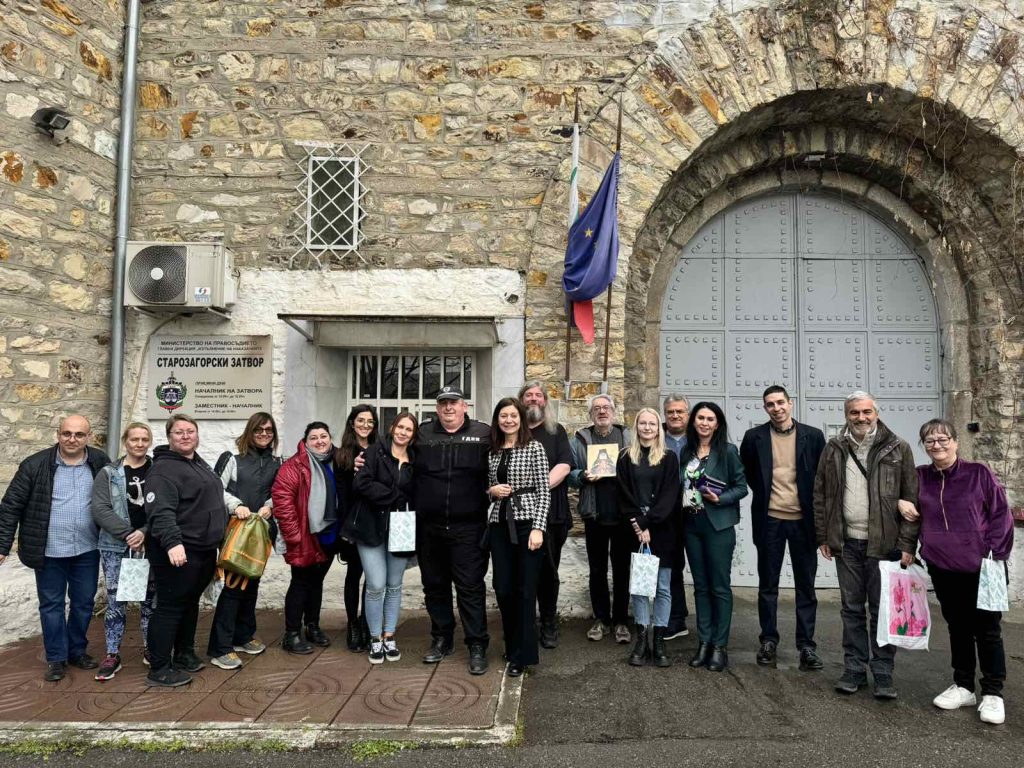
Prison – comparative realities and reflection
As a part of the final training and dissemination activities of the Erasmus+ KA2 ESCAPE project, we visited the prison in Stara Zagora. Our meeting with representatives from different departments was enriching and inspired a space for reality comparisons among the 3 partners countries: Finland, Bulgaria and Italy.
The Stara Zagora prison was built back in 1930. Nowadays it holds an important role because it ”welcomes” people from Stara Zagora and Haskovo provinces. We were very surprised to find out that some of the inmates are foreigners, with temporary residence in Bulgaria, convicted for minor crimes. Inmates are of different age, educational and social backgrounds, yet the typical profile is of a male, age 30-39 years, with high-school education and some professional qualification. For those who have not finished secondary education, the prison offers education of all grades, from 1 to 12, and an opportunity to acquire a professional qualification in handy jobs such as woodwork. The Stara Zagora school is the second biggest in-prison school in the country – a four-story building with specialised IT room and STEM rooms.
Apart from the school, the prison also has a few other integrational facilities such as a library, a shop. It also has a church that has been built by prisoners and provides religious celebrations as baptising and weddings for inmates and their families.
Inmates have the opportunities to work in one of the production units in site – production units for furniture, window frames and construction frames. Free time is devoted to sports, arts and group activities such as language classes, newsletter writing and others. It is not as life in the free world, but it is a step in the right direction.
The participants got a chance to experience the prison not only through observation, but also through discussions with representatives from different departments, with Mr Tanev from the department for social activities, the priest Pop Jordan, the head of the security department, the director and the deputy director of the prison. Somehow the participants managed to find people with a similar role with theirs, and quickly connected. There was a lot of space for questions, comparison of in-country realities and meaningful exchange of international practices. An interesting fact from our comparison is that in Bulgaria, the inmates have to eat meals together in a dining hall whereas in other countries they eat in their cells. Another interesting difference is the specific requirements for phone calls – in Bulgaria, the inmates are allowed to speak on the phone with their friends and family as much as needed whereas in Italy, they can speak with their loved ones for 20 minutes for a whole week.
Overall, the experience showcased how the prison tries to rehabilitate the inmates in different ways. And the success depends on both sides – creating the appropriate learning and educational environment and the willingness to participate in it.